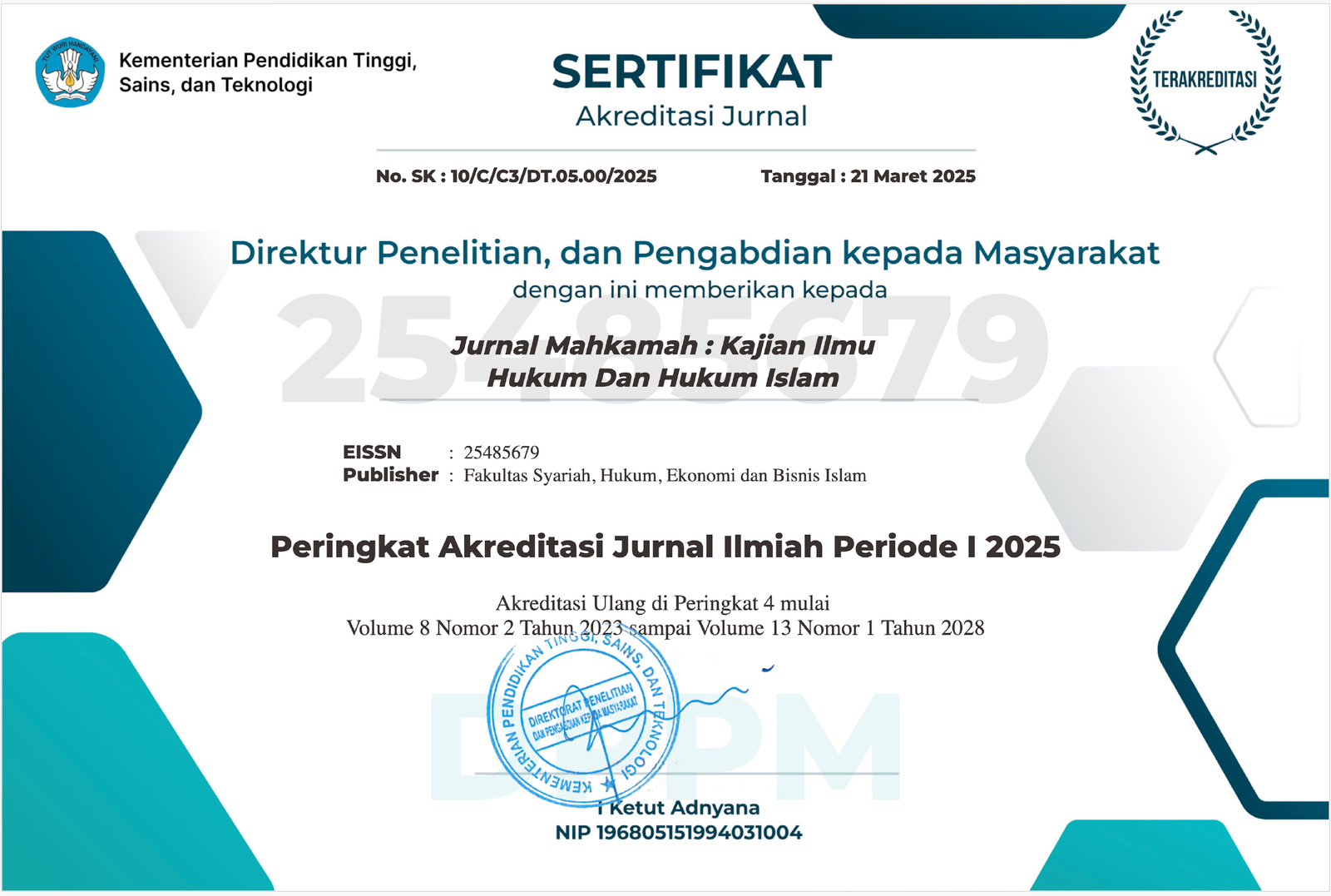The Benefit Principles of Istibdāl on Wakaf Objects
(Analysis of Dhawābith al-Mashlahah Sa'īd Ramadhān al-Būthi)
DOI:
https://doi.org/10.25217/jm.v6i1.1246Keywords:
Dhawābith al-Mashlahah, Istibdāl, Waqf, Waqf ObjectsAbstract
The concept of waqf in fiqh is Islamic philanthropy in the form of amal Jariyah which requires the eternal characteristics of the object given. However, with the development of the era of waqf objects, it will be reduced mainly in property waqf. So that in order to keep the waqf objects productive, istibdāl is carried out in order to remain productive on the basis of mashlahah. To find the mashlahah principles in istibdāl, the author conducted a research of the boundaries of the mashlahah by al-Būthi. This research would not be far from the formulation of the problem that the author intended to find the answer; 1) what is the concept of istibdāl in fiqh and Indonesian representation? 2) What is the procedure for istibdāl waqf in the context of Indonesian waqf fiqh?; 3) How is the construction of mashlahah principles in istibdāl waqf practice based on dhawābithal-mashlahah al-Būthi? The research conducted was a normative research (doctrina), where the data used were secondary sources (not in the field) in the form of books of fiqh and legislation. From the data obtained, the authors conducted a descriptive analysis. The results showed that the permissibility of istibdāl waqf based on the mashlahah principle that must be fulfilled, that is, it must be in a state of dharurah, for urgent religious purposes, for the general public, there is an inadequacy, through the agreement of wāqif and nazhir, replaced at least with the same, the object of waqf is examined with involving figures and several elements of society as well as following the provisions of the Shari'ah and applicable laws.
Downloads
Published
How to Cite
Issue
Section
License
This work is licensed under a Creative Commons Attribution-ShareAlike 4.0 International License.
Authors retain copyright and grant the Jurnal Mahkamah : Kajian Ilmu Hukum Dan Hukum Islam right of first publication with the work simultaneously licensed under a Creative Commons Attribution License (CC BY-SA 4.0) that allows others to share (copy and redistribute the material in any medium or format) and adapt (remix, transform, and build upon the material) the work for any purpose, even commercially with an acknowledgment of the work's authorship and initial publication in Jurnal Mahkamah : Kajian Ilmu Hukum Dan Hukum Islam.
Authors are able to enter into separate, additional contractual arrangements for the non-exclusive distribution of the journal's published version of the work (e.g., post it to an institutional repository or publish it in a book), with an acknowledgment of its initial publication in Jurnal Mahkamah : Kajian Ilmu Hukum Dan Hukum Islam.
Authors are permitted and encouraged to post their work online (e.g., in institutional repositories or on their website) prior to and during the submission process, as it can lead to productive exchanges, as well as earlier and greater citation of published work (See The Effect of Open Access).









